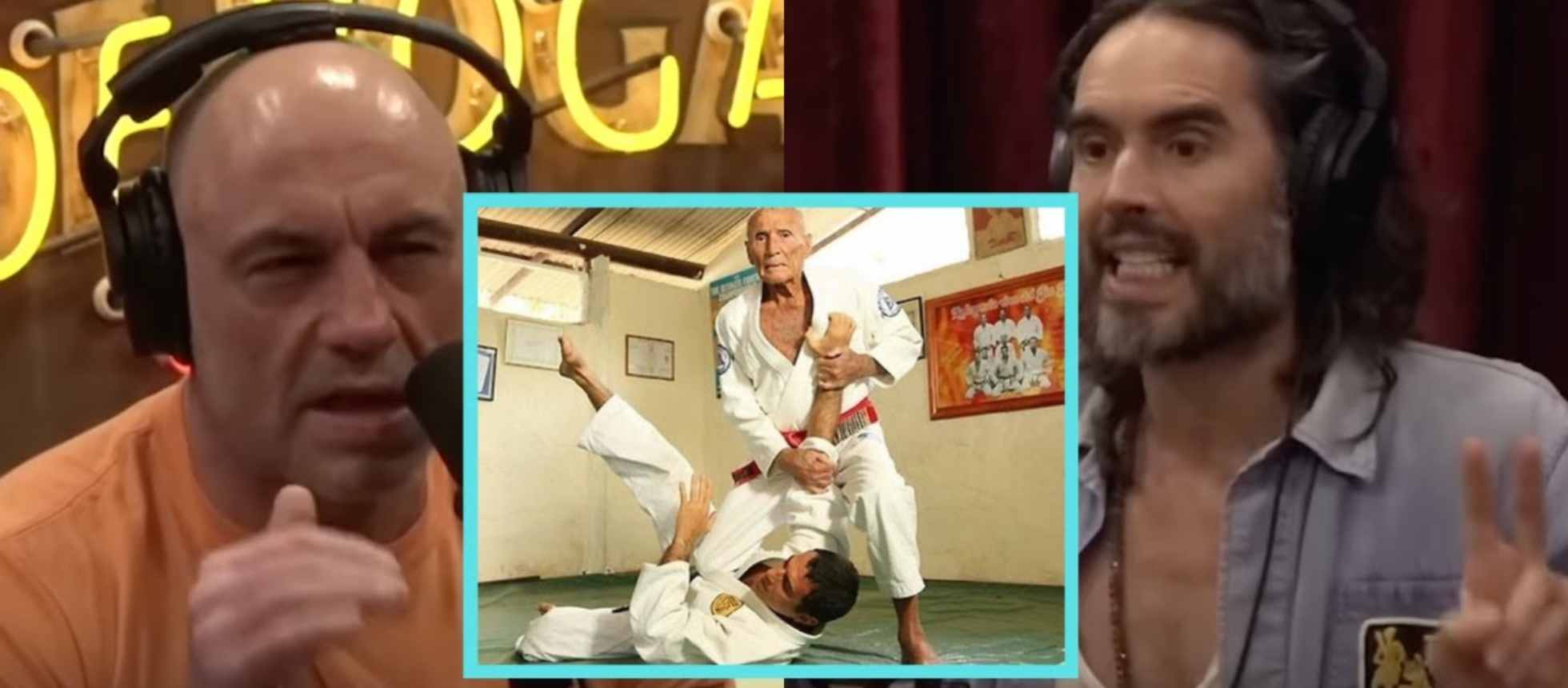Russell Brand is an English comedian, actor, writer, and activist. He first gained fame in the UK in the early 2000s for his stand-up comedy, and later became known internationally for his roles in films such as “Forgetting Sarah Marshall” and “Get Him to the Greek.”
Brand has also written several books, including his memoir “My Booky Wook”. He is known for his outspoken views on politics and social issues, and has been involved in activism related to mental health, and environmental causes.
A little while ago, he reconnected with Joe Rogan and the two did a 3 hour podcast together. There they discussed their BJJ journeys and compared notes.
Brand shared:
“I, like, again, because of coming on here, you’re the first person I’ll talk about Brazilian jujitsu. It’s difficult thing to start when you’re 40 years old and you don’t have an athletic background. But I’m a purple belt in jujitsu now.”
Rogan added:
“Getting a purple belt is like, you’re basically a black belt. You just need to put the time in. The difference between a white belt and a blue belt, the blue belt is like, okay, you’re learning things. You now have an understanding of moves that’s not just a beginner’s understanding. Like you know a path.”
“The only difference between that and a black belt is honing the edge and continuing to put it in the time.”
Rogan explained:
“The difference between my game when I was a purple belt versus my game when I’m a black belt is that I just learned more moves and became more consistent and then trained more and then got a better understanding of what to do and what not to do and much more responsible defensively and just got better condition and stronger.”
“And that got me to black belt. But you’re at purple belt level, which is the, that’s the great divide. That’s what separates someone who just starts presenting to you with someone who gets to black belt.”
As far as benefits go the two went on to say that doing BJJ can cause a multitude improvements.
Physical exertion can be a great way to connect with the body and experience discomfort. Many people who practice Brazilian Jiu-Jitsu, for example, find that the struggle of combat helps them to become more grounded and in touch with their bodies.
Additionally, physical struggle can help individuals to learn how to handle discomfort and stress. Engaging in activities that push us physically, such as hot and cold therapy or intense exercise, can help us develop a greater tolerance for discomfort and improve our ability to manage stress in other areas of our lives.
Mental struggle can be just as challenging as physical struggle. Facing our fears, addressing our weaknesses, and learning new skills can be incredibly difficult, but these challenges can ultimately lead to personal growth and development.
Embracing struggle can also be a great way to combat our ego. When we are forced to confront our limitations, we are humbled and reminded that we are not invincible. This can help us to become more self-aware and less self-centered.

